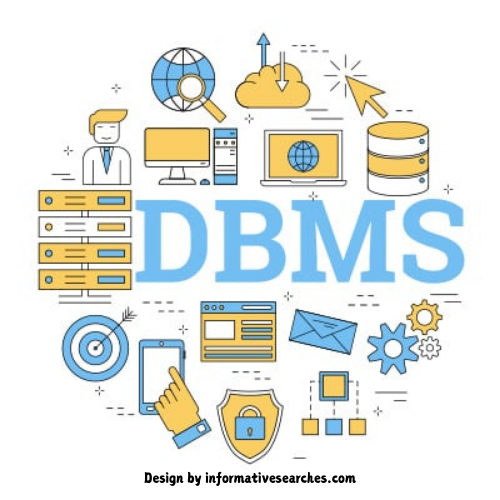
Introduction:
In today’s data-driven world, 11 Reasons Why You Should Use a Database Management System managing statistics efficiently is essential for businesses, organizations, and even individuals. A Database Management System (DBMS) is a software program software machine that helps you store, manage, and retrieve archives systematically. While some might also wonder if they surely favor a DBMS, the advantages it affords are compelling. Here are 11 factors why you want to mirror on consideration on the utilization of a database administration system.
1. Data Organization
One of the foremost blessings of the utilization of a DBMS is its manageable to put together information efficiently. A DBMS approves you to categorize and maintain information in structured formats, making it much less problematic to retrieve and manage. Unlike everyday file storage systems, which can emerge as chaotic, a DBMS ensures that statistics is organized logically, improving accessibility.
2. Improved Data Sharing
In many organizations, a couple of clients prefer to get admission to the equal data simultaneously. A DBMS helps this with the aid of way of imparting a centralized system the area customers can share documents except confusion or duplication. With elements such as character permissions and roles, a DBMS ensures that facts sharing is tightly closed and well-managed, enabling businesses to collaborate effectively.
3. Data Security
Security is a splendid difficulty for any organization. A DBMS affords sturdy protection features, such as patron authentication and get proper of entry to controls, which aid guard sensitive data from unauthorized access. You can define who can view or edit special data, reducing the hazard of data breaches and making positive compliance with statistics security regulations.
4. Data Integrity
Maintaining data accuracy is indispensable for decision-making and operations. A DBMS enforces records integrity via validation rules and constraints, making certain that totally official statistics is entered into the database. This reduces errors and inconsistencies, enabling groups to have trust their data.
5. Scalability
As your company grows, so does your data. A DBMS is designed to scale with your needs, whether or not or no longer you’re dealing with small portions of data or massive databases. This scalability functionality that you won’t outgrow your device as your data requirements expand, making a DBMS a future-proof solution.
6. Backup and Recovery
Data loss can be devastating for any organization. A DBMS consists of built-in backup and restoration features, allowing you to create regular backups and restore records in case of a failure. This performance ensures that you can get higher from facts loss quickly, minimizing downtime and defending your business employer continuity.
7. Efficient Data Management
Manual facts administration can be time-consuming and prone to errors. A DBMS automates many data administration tasks, such as records entry, updates, and reporting. This automation no longer completely saves time on the other hand moreover reduces the opportunity of human errors, allowing your crew to focal factor on more strategic activities.
8. Advanced Querying and Reporting
A suitable sized advantage of the utilization of a DBMS is its ability to function elaborate queries and generate specific reports. Most DBMS constructions come with wonderful querying languages, such as SQL, that enable clients to extract special information quickly. This performance lets in businesses to analyze records correctly and make educated choices specifically primarily based on real-time insights.
9. Data Redundancy Reduction
Data redundancy takes area when the equal piece of data is saved in a couple of locations, primary to inconsistencies and wasted storage space. A DBMS minimizes redundancy by normalization, which organizes data to decrease duplication. This surroundings pleasant storage now no longer totally saves residence on the other hand moreover ensures that all clients get entry to the most present day mannequin of the data.
10. Multi-User Access
In many environments, extra than one clients desire to work with the equal data simultaneously. A DBMS helps multi-user access, allowing several human beings to observe and write documents at the equal time as barring conflicts. This characteristic is vital for collaborative work and enhances productiveness via capacity of allowing groups to characteristic in real-time.
11. Cost-Effective Solution
While there can additionally be preliminary prices associated with imposing a DBMS, the long-term economic financial savings can be substantial. By automating facts administration tasks, bettering information accuracy, and decreasing downtime, a DBMS can lead to extended effectivity and productivity. Over time, these benefits regularly outweigh the preliminary investment, making a DBMS an inside your price range reply for managing data.
Conclusion:
In summary, a Database Management System offers a multitude of advantages that can especially enhance how you manipulate data. 11 Reasons Why You Should Use a Database Management System from increased organization and protection to best querying competencies and fee savings, the reasons to undertake a DBMS are compelling. Whether you’re a small business organization looking out to streamline operations or a large company managing tricky datasets, a DBMS can furnish the gear quintessential to take care of your facts effectively. In a world the area data is king, the use of a Database Management System is no longer simply an option; it’s a necessity for these who wish to proceed to be aggressive and make educated decisions. If you haven’t already carried out a DBMS, now is the time to replicate on consideration on making that funding for a larger efficient, secure, and geared up approach to files management.